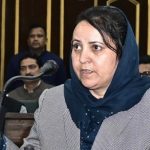India’s digitalisation has impressed the United Nations General Assembly (UNGA) President Denis Francis.He has said that it has made significant contributions for achieving financial inclusion and reduced poverty besides providing India with comparative advantage. Francis underlined that the Indian model of digitalisation can be shared and adopted by the international community and the Indian example is a good example in digitalisation and worth emulating for development globally. His views have been shared by the PTI that has conducted an interview with him. Francis is the President of the 78th Session of the UNGA. Giving his impression about India, he said. “Let me say first of all that since I’ve been to India, every time I think of India, I think ‘Incredible India’. And I mean this in all earnest ….And I saw it when I was there. The specific example to which I can refer is India’s use of digitalisation.” His view of India in terms of digitalisation success is an extension of his earlier impression that he gained on visiting India from 22- 26 January this year when he was on an official visit. Incredible India slogan to promote Indian tourism had caught his gaze. During this period he had a bilateral meeting with the External Affairs Minister S Jaishankar in New Delhi and also visited Jaipur and Mumbai. In the interaction with the policy makers, civil society members and think tanks he talked about sustainability, multilateralism, accessibility and digital private infrastructure. By getting recognition from a neutral observer is indeed an achievement. As it enables us to evaluate the national policy on digitalisation. Francis has lauded India’s adoption of digitalisation as a means to alleviate poverty and integrate millions of individuals into the formal economy, stating that it can be achieved “simply through the use of a handset and a digitalization model.” He has emphasised the significance of digitalization, highlighting its productivity, cost reduction capabilities, efficiency improvements, and its role in making goods and services more affordable. Francis is right when he says that the role of digitalisation in helping Indian women and farmers in far-flung places to negotiate their prices, deal with banks and make payments, from any place is commendable.He has aptly underlined that India can alleviate poverty and bring people into the formal economic system through the use of a handset and a digitalisation model. Digitalisation is productive, it drives cost down, makes economies more efficient, makes things cheaper.He has not stopped there but also recognised the importance infrastructure in terms of economic growth and job creation in India.He has observed that the infrastructure plays a pivotal role in stimulating economic growth in any nation, as it generates significant demand for materials, labor, and resources, thereby creating employment opportunities.His words sum it up well,when he says, “I noted when I was in your country recently, India and I was really quite impressed with this – the extent of investment being made in infrastructure in India, not just highways but even rail and monorails. If the infrastructure is built in a sustainable way, if it is resilient and can therefore withstand external shocks and stresses, it means that the economy is able to bounce back more quickly from that event, less jobs are lost and it requires less in the way of investment to get things working and moving again in the economy.” It is clear that the digitalisation and infrastructure has been a game changer for bringing India in orbit of economic powers that can shape the destiny of the new world post globalisation. This global recognition must make India more sensitive towards making more value addition and emerging as the global economic power that can make significant contributions for the prosperous world.
UNGA President Praises Indian Digitalisation
Sign Up For Daily Newsletter
Be keep up! Get the latest breaking news delivered straight to your inbox.
By signing up, you agree to our Terms of Use and acknowledge the data practices in our Privacy Policy. You may unsubscribe at any time.
Leave a Comment Leave a Comment
Stay Connected
Latest News
Recent Posts
- J&K Youth Congress holds the “Vote Chor Gaddi Chord” protest in Jammu.
- J&K: SIA Kashmir apprehends Hizb-ul-Mujahideen sleeper cell from Shopian
- Education Minister Sakina itoo denies permanent takeover of Jamaat-linked schools
- Fraud Marriage Nexus Busted In Jammu, 5 Including Bride Arrested: Police
- Jaishankar slams US tariffs, says India will not compromise on farmers’ interests







